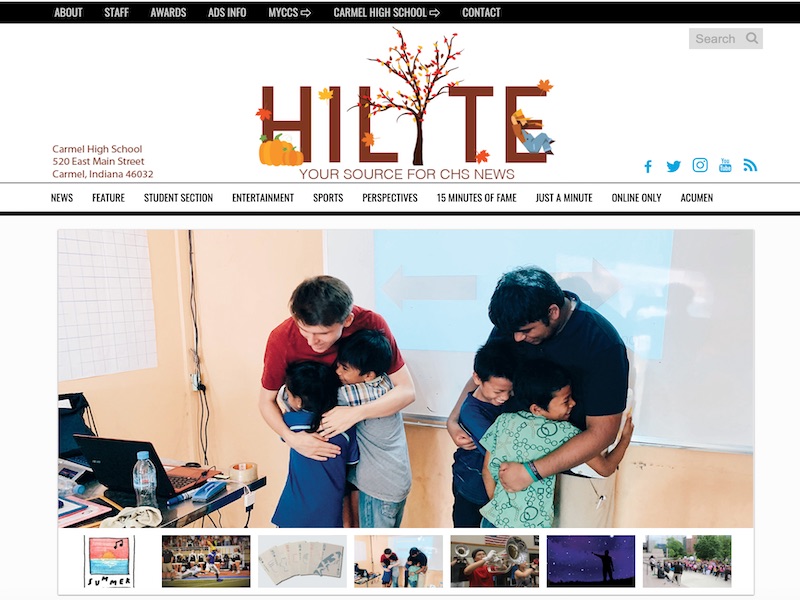8 Easy Facts About News Websites Explained
8 Easy Facts About News Websites Explained
Blog Article
The Greatest Guide To News Websites
Table of ContentsGetting My News Websites To WorkUnknown Facts About News WebsitesThe Ultimate Guide To News WebsitesNot known Facts About News WebsitesNews Websites Fundamentals Explained
It was down in the UK and Brazil yet up a few other nations, such as Greece, Bulgaria, and Poland (News Websites). This year, for the initial time, we inquired about the various means that individuals stay clear of the news and located that around half of avoiders (53%) were attempting to do so in a broad-brush or regular way for instance, by shutting off the radio when the information began, or by scrolling past the news in social mediaYou claimed that you try to proactively prevent information.

I'm possibly selecting to find out more light-hearted tales than I used to right now. M, 51, UK Turning my back on news is the only means I feel I can cope sometimes. I have to knowingly make the initiative to avert for the sake of my very own psychological health and wellness.
The News Websites Ideas
Selective evasion of Ukraine news was greatest in much of the nations closest to the dispute, reinforcing findings from our added survey last year, right after the war had started. Our data might not recommend a lack of passion in Ukraine from neighboring countries but rather a need to manage time or secure mental health and wellness from the really real scaries of war.
Comparing Finland with a politically polarised country such as the United States (see next chart) that is less impacted by the battle, we discover a really different pattern of topic evasion. In the USA, we discover that consumers are extra likely to prevent subjects such as nationwide politics and social justice, where arguments over problems such as sex, sexuality, and race have become extremely politicised.
American politics are rather hazardous nowadays. I locate often that I have to separate from stories that simply make me mad. F, 61, United States For some individuals, bitter and dissentious political disputes are a reason to turn off information altogether, however for some political upholders, avoidance is typically regarding shutting out viewpoints you do not intend to hear.

Fascination About News Websites
Some are looking to make news more accessible for hard-to-reach groups, widening the information schedule, commissioning even more inspiring or favorable information, or accepting constructive or services journalism that give individuals a sense of hope or individual company. In our survey this year, we asked participants regarding their rate of interest in these different techniques.
This describes why stories like Ukraine or national politics do well with news regulars however can at the exact same time transform less interested customers away (News Websites). Careful avoiders are less thinking about all types of news than non-avoiders but in read the article relative terms they do seem to be more curious about positive or solutions-based information

A Biased View of News Websites
2023). This might hold true in the minute, however gradually it appears to be leaving several people vacant and less satisfied, which may be threatening our link with and depend on in the news. Throughout markets, overall rely on information (40%) and rely on the resources individuals utilize themselves (46%) are down by an additionally 2 percentage points this year.
Through the rear-view mirror, the COVID-19 trust fund bump is clearly noticeable in the complying with graph, though the direction of traveling after that has been mixed. Sometimes (e.g. Finland), the trust fund boost has been maintained, while in others the upturn looks more like a blip in a tale of ongoing lasting decrease.
Some of the highest possible reported levels of media objection are found in countries with highest degree of mistrust, such as Greece, the Philippines, the USA, France, additional resources and the UK. The lowest levels of media criticism frequent those with higher levels of trust, such as Finland, Norway, Denmark, and Japan.
The smart Trick of News Websites That Nobody is Talking About
This year we asked respondents concerning their choices for text, audio and video clip when consuming news online. Usually, we find that the majority still like to review the news (57%), as opposed to watch (30%) or listen to it (13%), however younger people (under-35s) are extra likely to listen (17%) than older groups.
Behind the averages we discover substantial and surprising country differences. In markets with a strong reading custom, such as Finland and the UK, around 8 in 10 still favor to read online news, yet in India and Thailand, around 4 in 10 (40%) claim they prefer to watch news online, and in the Philippines that proportion is over half (52%).
Report this page